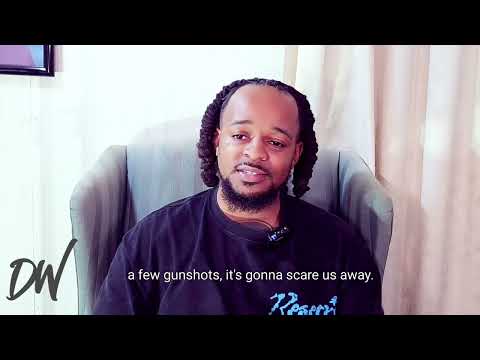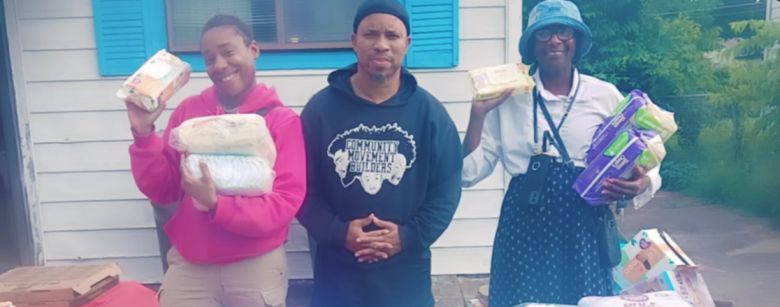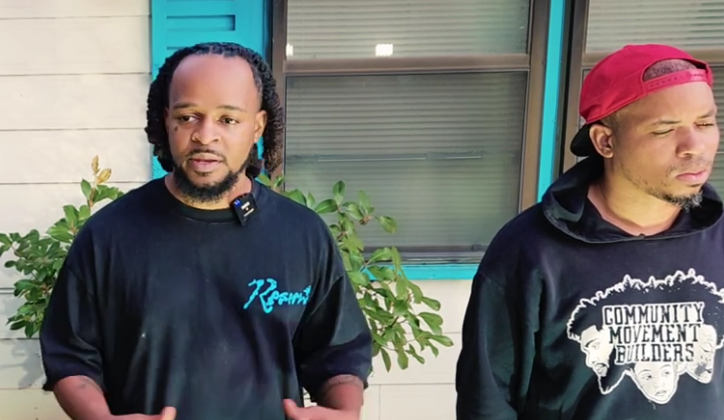
In the heart of Highland Hills, a quiet revolution is growing. It’s not led by institutions or government agencies, but by committed neighbors who believe in transformation through presence, purpose, and planting seeds—literally and figuratively.
Davante D. Peters, chair of the Dallas Chapter of Community Movement Builders (CMB), spoke with Dallas Weekly about the organization’s on-the-ground work through The Malcolm X Academy, also known as the Charles Beazley Center. From neighborhood patrols to urban agriculture, Peters breaks down what real community care looks like—and why it’s urgently needed.
DW: For those unfamiliar, what is the Malcolm X Academy and what does your work there involve?
Peters: The Malcolm X Academy—also known as the Charles Beazley Center—is part of the national network of Community Movement Builders. Here in Dallas, we run an after-school program, maintain two community gardens, host family events, and distribute vital resources like Narcan, diapers, and food. We’ve had Father’s Day celebrations, took kids to the Fort Worth Zoo, and we’re always building. Our mission is simple: improve the lives of Black people right here in Highland Hills.
DW: You recently had a harrowing experience while out in the community. Can you share what happened?
Peters: We were back at the Pinks Apartments to follow up on interviews we’d been doing—giving people space to speak their truth and letting them know what we do. While pulling up, we drove straight into a gun battle. Not even 10 seconds after we parked, shots rang out. I ducked in the car. My comrades were outside, exposed. I could hear bullets hitting my vehicle—at least five. It sounded like war.
That moment shook me—not out of fear, but awareness. It reminded me just how necessary our presence is. These weren’t grown men out there. These were kids… babies, really. It made me double down on the work. We have to reach them before they’re lost to this.
 Community Movement Builders – Dallas HQ. Photo Credit: Judah Agbonkhina
Community Movement Builders – Dallas HQ. Photo Credit: Judah Agbonkhina
DW: Talk to us about your patrols. What do they look like and what’s the purpose?
Peters: We’ve been doing this since 2019, starting in the Greens where murders happened every two weeks like clockwork. Our mission was to show up—build relationships, respond to violence, and remind folks they’re not forgotten. We don’t come to chastise or act like police. We come to be seen, be consistent, and be accountable to our people.
Fast forward to now, we patrol areas around J and Irving, Five Mile, Basswood, Castle Hills—wherever we’re needed. Our goal isn’t just to react to crime but to prevent it. Police come after something happens. We want to stop it from happening in the first place.
DW: And the garden? It’s more than just produce, right?
Peters: Absolutely. Our community garden—shoutout to Yamisi Nancy who helps lead it—is about healing and connection. It’s about getting back to the Earth. We grow yellow and orange watermelons, squash, lemongrass, oregano, thyme, basil—all kinds of medicinal and edible plants. The garden gives us space for youth programs, for elders, for teaching sustainability. Yes, we’re militant when needed—but we’re also holistic. The land is part of our liberation.
DW: Given everything you’ve experienced—including being caught in gunfire—do you ever feel afraid doing this work?
Peters: In 2019, yeah—we got shot at directly. The recent incident was more about being in the crossfire. But fear? Not really. Awareness, yes. We know where we are. We stay alert. Of course, we want to go home safe and we don’t want to cause harm to anyone, either. Our goal isn’t to escalate but to stay present, calm, and ready.
I wouldn’t say we’re fearless, but we’re motivated. Because when you see kids doing the shooting, you realize how urgent this is. If we don’t show up, who will?
DW: Some folks might ask, “Is it working?” What’s your response?
Peters: Look, the biggest issue in our community isn’t just violence—it’s inaction. People complain, point fingers, but don’t step up. We don’t need everyone to agree with our exact methods. But do something. Create your own ecosystem. Be the change you want to see. We’re out here doing the work—and if more of us did it together, imagine the difference we could make.
DW: What do you need from the community right now?
Peters: Support in whatever way you can. If you can donate—do it. If you can volunteer—come on. Help us scale diaper drives, food giveaways, youth programs. Not everyone’s meant for the frontlines, but everyone has something they can contribute. Add value however you can. Just tap in.
If you’re ready to get involved with the work of Community Movement Builders or the Malcolm X Academy, follow them on social media or visit the center in Highland Hills. Change doesn’t start somewhere else—it starts with us.
Related
